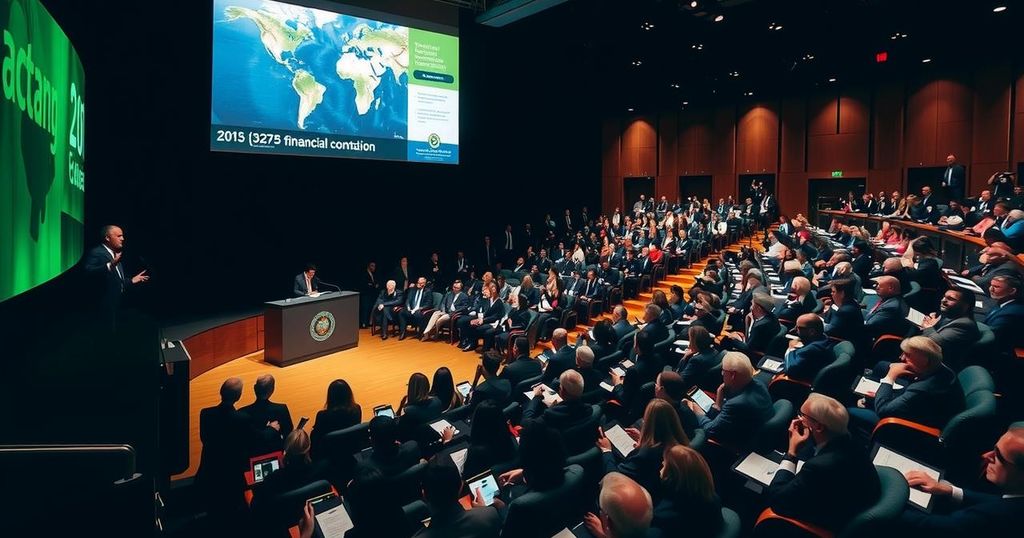At COP29, rich nations will discuss pledging increased financial support for developing countries grappling with climate change challenges. Originally committed to $100 billion annually from 2009, actual funding has only recently met this goal. Key issues include allocations for loss and damage, adaptation, and mitigation financing amid growing climate-related crises and economic constraints facing donor nations.
At the upcoming COP29 summit in Baku, Azerbaijan, rich nations are expected to deliberate on the financial commitments they will make to assist developing countries in addressing climate change challenges. In 2009, developed nations pledged to donate $100 billion annually by 2020, but actual funding only reached $83.3 billion by that deadline. With climate-related emergencies intensifying, the need for investment has surged, prompting talks on how to increase funding, distribute it effectively, and designate specific allocations for loss and damage, adaptation, and mitigation efforts. The financial demands for climate action are categorized mainly into three areas: loss and damage, adaptation, and mitigation. The recently established loss and damage fund will assist developing nations in recovering from existing climate impacts. Adaptation focuses on preparing for future climate effects, while mitigation aims to aid in the transition away from fossil fuels. Developing countries advocate for a new financial target that allocates funds expressly for loss and damage to better support vulnerable nations. Historically, public funds contributed largely to climate action financing, with 82% of the total coming from government sources. As the urgency of climate change mounts, estimates suggest that at least $1.3 trillion must be mobilized by 2030 to address the ongoing crisis adequately. Developed nations, including the UK, face significant economic challenges that may hinder their ability to fulfill previous commitments, raising concerns over future pledges. The discussion at COP29 will also include proposals for funding mechanisms, as much of the current public financing is delivered as loans, which can exacerbate the debt burdens of developing nations. The matter of who bears the financial responsibility remains contentious; historical emissions by developed nations have led to calls for them to assume a larger share of funding responsibilities. In contrast, emerging economies such as China now wield significant economic power and carbon footprints, prompting discussions on their potential contributions toward climate finance. Overall, COP29 serves as a pivotal moment for establishing a collaborative financial strategy to combat the increasingly severe impacts of climate change on vulnerable nations.
The COP29 climate summit represents a critical juncture in global efforts to mobilize financial resources toward combating climate change. Originally set at $100 billion per year by the end of 2020, the financial commitments formulated by developed nations have fallen short, thus highlighting the urgency for renewed commitments and clear funding allocations. Given the growing frequency and severity of climate disasters across the developing world, the significance of improved financial support is more pressing than ever to enable adaptation and resilience-building efforts.
In conclusion, the COP29 summit is poised to be a defining moment in the global response to climate change, particularly regarding financial commitments. Developing nations are urgently seeking increased and redefined financial support from wealthier countries to recover from climate impacts and prepare for future challenges. The outcomes of this summit will likely shape the financial landscape for climate action in the coming years, necessitating cooperation and accountability among all participating countries.
Original Source: www.bbc.com






